Magazines list (45)
Sort:
Lithuania
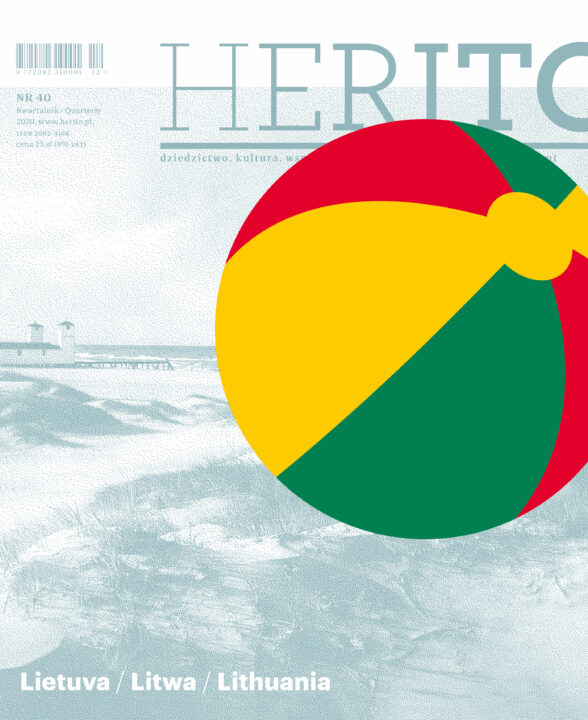
In spite of the stereotypes established in Poland – those of the pagan Lithuanian forest or the tropes of Mickiewicz and Miłosz – the authors look at Lithuania from an unusual side, from the sea. That is why they write more about the Curonian Spit, Palanga, Nida and Klaipeda. Having reached Vilnius, they suggest a different journey – in search of less known monuments than those along the beaten track to the Gate of Dawn, choosing Jan Krzysztof Glaubitz, Wawrzyniec Gucewicz and Mikalojus Vorobjovas as their guides.
Premiere:2021
Krakow and the World
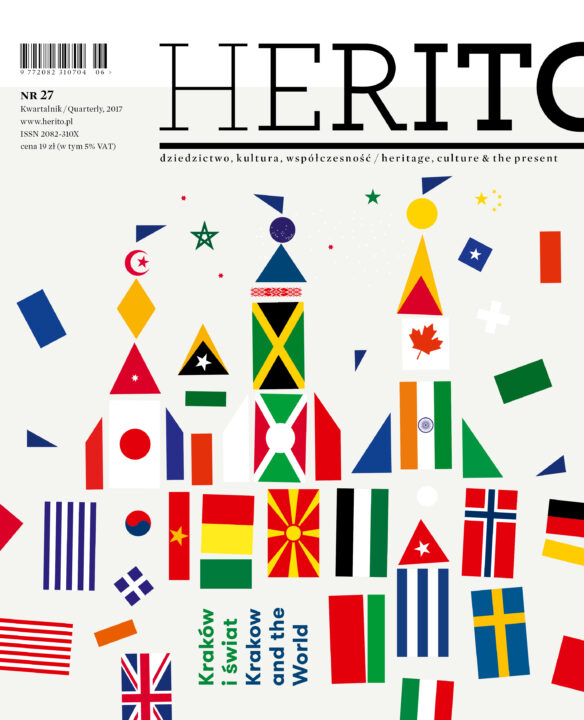
The International Cultural Centre sees its mission and udertakings as founded on what is labelled as cultural heritage, namely using the elements of the past so as to serve present and future goals. The city understood as a mirror of civilisation – let’s take Krakow as an example – was always at the core of this way of thinking. That is why we believe that the debate on the nature of the city as well as the transformation which Krakow has undergone is crucial.
Premiere:2017
Kharkiv
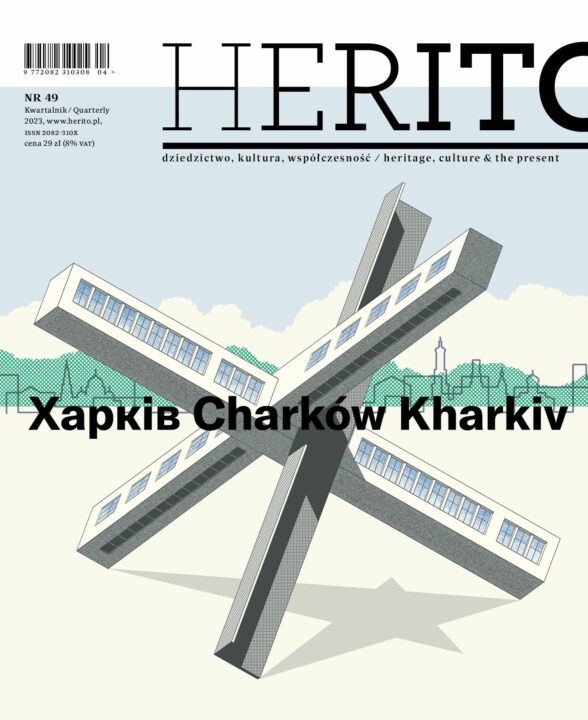
In the Kharkiv-themed issue of Herito, we delve into the history of the city, we ask about its Ukrainian DNA, which was so clearly manifested after the Russian invasion a year ago, we check what makes it unique. We show the tangible and intangible heritage of the city, which we often looked at before through the lens of stereotypes fuelled by foreign propaganda.
Premiere:2023
Invisible places
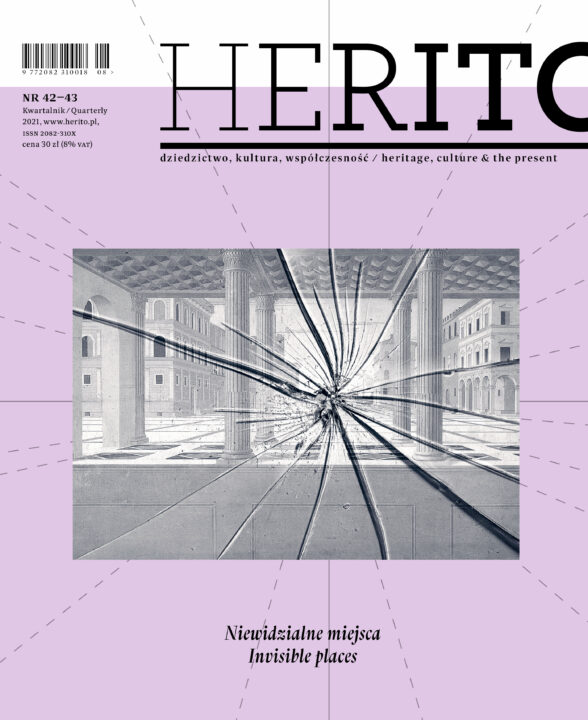
Invisibility is not an empty concept or a neat rhetorical device from the margins of Italo Calvino’s book, but the lived experience of Central Europeans.
Premiere:2021
Imagined Identities
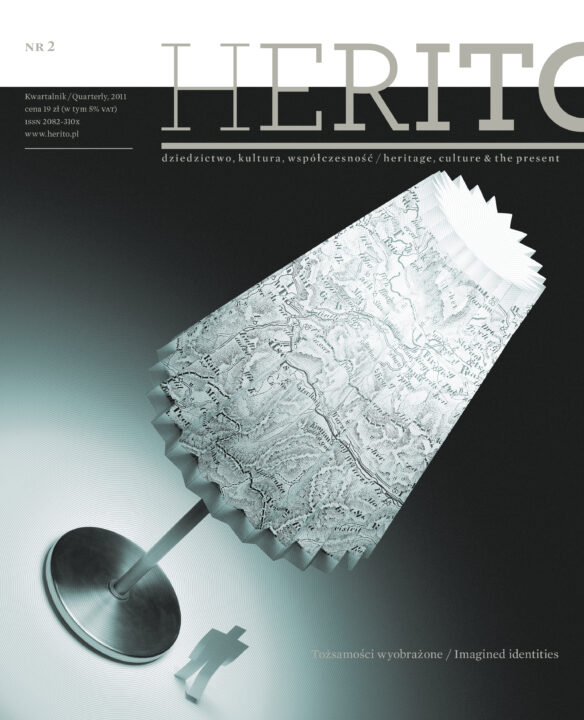
Imagined communities, called thus by Benedict Anderson, revealed the principle of nation-building, namely inculcating an image of a translocal community to which people belong.
Premiere:2011
Hungary
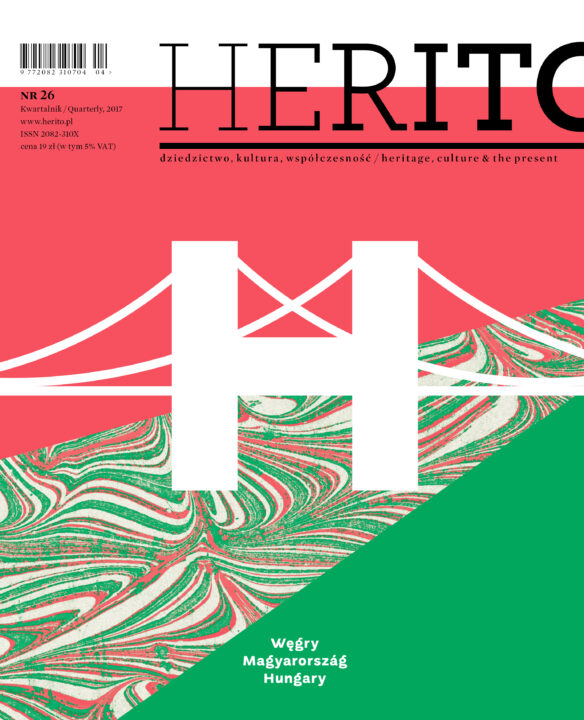
Stanisław Vincenz used to say that the Danube river was a gate to Hungary. Horace wrote that it was as deep as the sea. The Danube unites Hungary, it is the country’s spine and bloodstream. When it flows beyond Hungary, it becomes its border. And in fact, every border is fluid, it both divides and unites, it is an end and a meeting point. The Danube and Hungary are similar.
Premiere:2017
Healthy Places
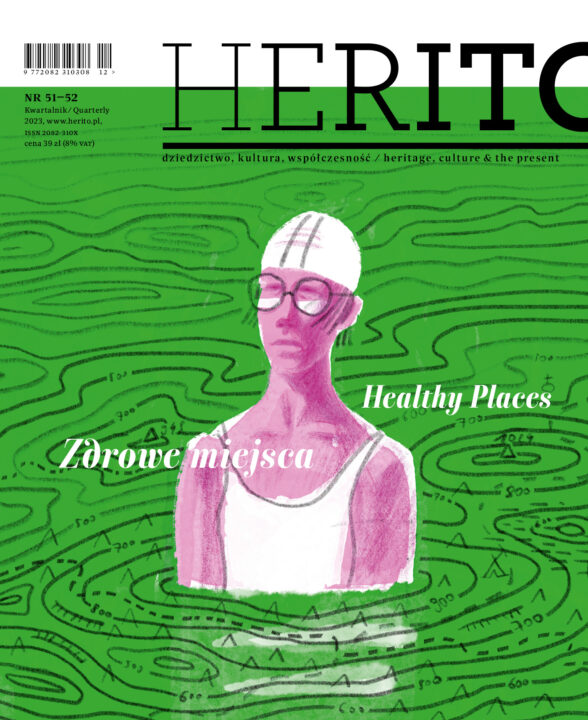
Since ancient times, places for rest and relaxation have been established in Europe. The Romans founded public baths not only on the Italian peninsula, giving rise to a spa culture. The “invention” of leisure in the 19th century meant that leisure was no longer the elitist pleasurable pastime of the upper classes, and the curative trip “to the waters” gradually democratised and become more accessible.
Premiere:2024
Green
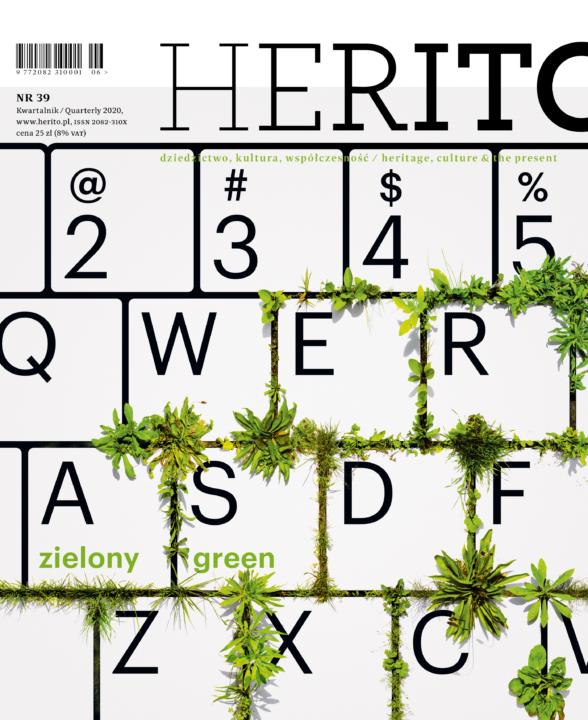
The issue of the HERITO quarterly devoted to the relationship between man and nature. Developed in exceptional conditions, between an epidemic, a fire in the Biebrza National Park, and the forecasts of a summer drought, it made us even more aware of the need for contact not only with other people, but also with pure nature.
Premiere:2020
Galicia After Galicia
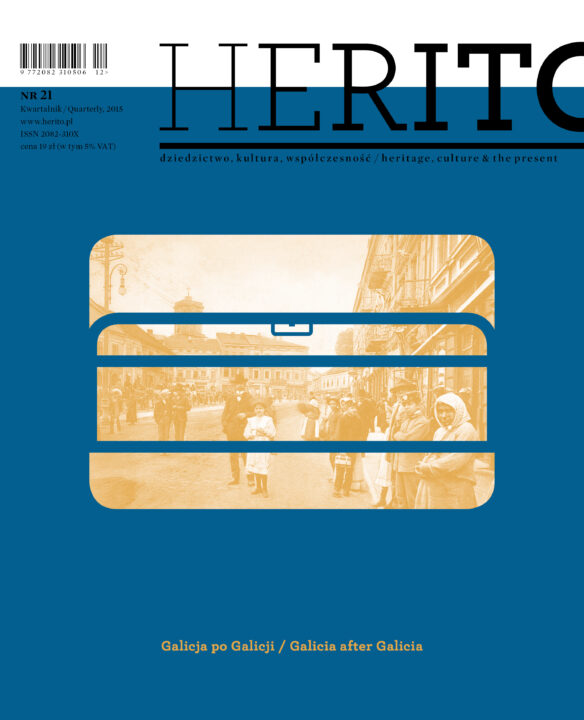
For 150 years Galicia was an artificial construction of Austrian diplomacy, the fruit of the partitions of Poland and its failure. It has not existed now for 100 years. That is why we are constantly asking the question: why is Galicia constantly in us? Does it really determine our identity? Where does the power and attractiveness of this legacy come from today? The his- tory of Galicia provokes us to ask difficult, at times very difficult, questions, ones that often give us contradictory answers.
Premiere:2015
European Year of Cultural Heritage 2018
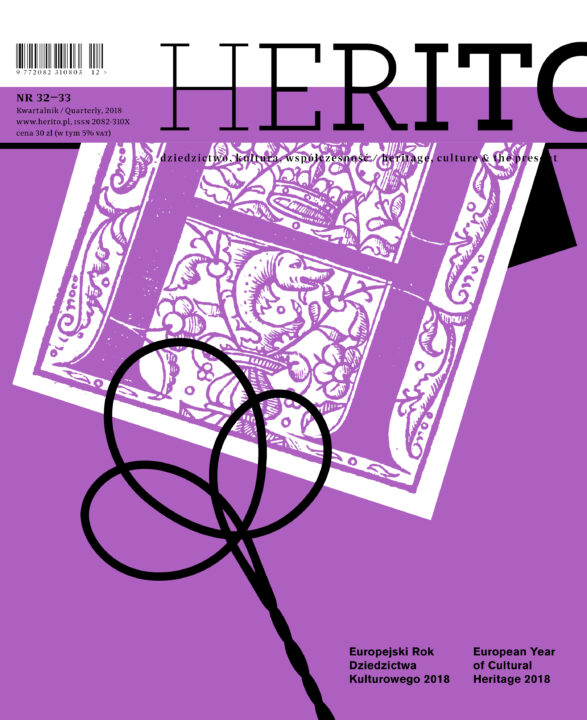
What will remain after the European Year of Cultural Heritage 2018? How to talk about history and memory to build bridges rather than consolidate existing divisions? Where lies the key to formulating an inclusive European narrative that would express the experience of new Central European member states? Why does heritage mean people and what is the direction in which contemporary heritology will develop?
Premiere:2018
Copyright © Herito 2020
